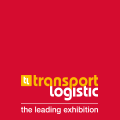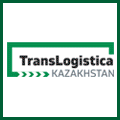
All users of OCIMF’s tanker inspection programme can now conduct trial
SIRE 2.0 inspections to test their readiness for digitalised inspections
22 January 2024 – (LONDON) The Oil Companies International Marine Forum (OCIMF) has commenced ‘Phase 3’ of the transition to its digitalised Ship Inspection Report Programme (SIRE 2.0), meaning all programme users can now participate in trial SIRE 2.0 inspections.
OCIMF has been rolling out SIRE 2.0 (the digitalised and enhanced version of the widely used tanker inspection programme SIRE) in a ‘phased approach’ over the past year. Phase 3, the industry-wide ‘beta-testing’ phase of the roll-out, provides the opportunity for all vessel operators, programme recipients and submitting companies to fully familiarise with the new inspection process under SIRE 2.0.
OCIMF has notified its membership and programme users that this will be the only opportunity to participate in SIRE 2.0 inspections and identify areas for improvement before SIRE 2.0 becomes the commercial tanker inspection regime at Phase 4 and SIRE (VIQ7) is withdrawn.
Aaron Cooper, Programmes Director, OCIMF, explains:
“SIRE 2.0 represents a seismic shift in the way tanker inspections will be conducted which is why we have taken a gradual approach to rolling out the new programme. Having successfully completed end-to-end trial inspections with a sample group, we’ve now reached a critical milestone; giving all programme users the opportunity to trial SIRE 2.0 inspections in Phase 3 of the roll-out.
“Programme users have been working exceptionally hard to familiarise themselves with all the resources and training materials developed to support the new inspection regime, and for that we are very grateful. This trial inspection period coupled with the anonymisation of reports allows all users to put theory into practice with no commercial implications. We strongly encourage all programme users to participate.”
SIRE 2.0 inspections will be conducted in digital format, in real-time, with inspectors completing a Compiled Vessel Inspection Questionnaire (CVIQ) using a tablet device. The move to a digital solution means that every tanker inspection will be bespoke, with questions drawn from the ‘SIRE 2.0 Question Library’ using an algorithm to select questions based on the type of vessel, its outfitting and operational history to create a one-time Compiled Vessel Inspection Questionnaire (CVIQ).
As the CVIQ generated will be bespoke and specific for each inspection for each individual vessel, users of SIRE 2.0 should be prepared to respond to all questions within the SIRE 2.0 Question Library applicable to a particular vessel. Every question will require the inspector to give a response in relation to Hardware, Processes and Human Factors, and observations can be supported with photographs, where allowed.
OCIMF advises industry to use all the documentation and training resources made available on the OCIMF website to ensure that personnel at sea and onshore are fully prepared for SIRE 2.0 inspections.
Source, Navigate PER



.jpg)








